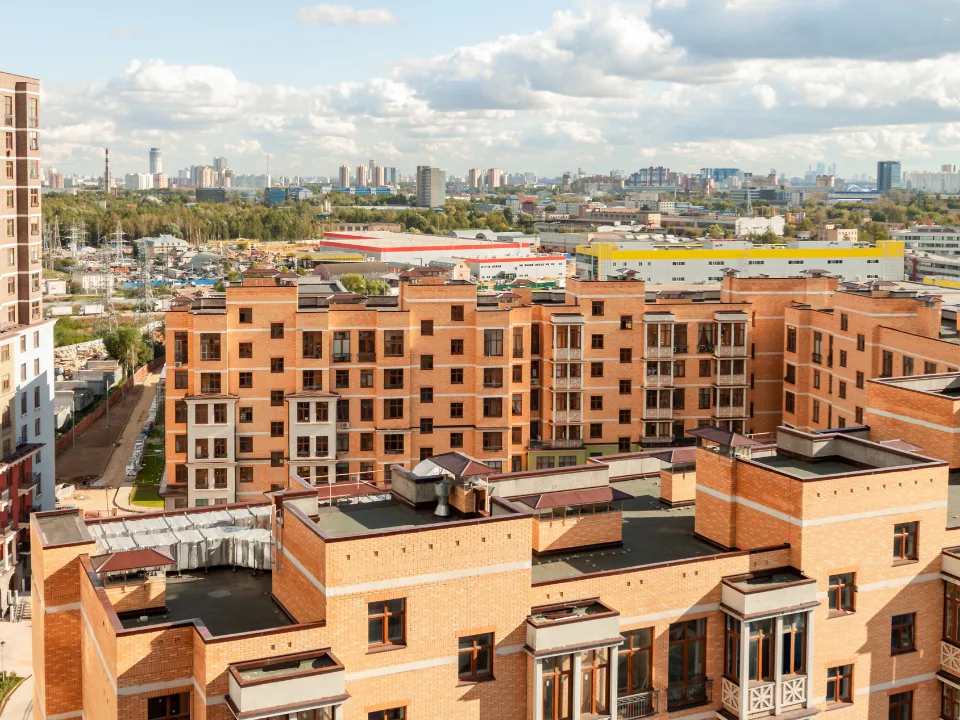WeWork Secures $450M in New Funding to Exit Bankruptcy
WeWork has arranged approximately $450M in new financing to exit Chapter 11 bankruptcy without the involvement of its co-founder, Adam Neumann.
Good morning. WeWork magically secures $450M in funding, without Adam Neumann, to exit bankruptcy by June. Plus, lawmakers push new legislation to curb Wall Street’s influence on the single-family housing market.
Today’s issue is brought to you by 10 East—a membership-based investment firm focused on private market exposure.
Market Snapshot
|
|
||||
|
|
*Data as of 4/29/2024 market close.
BACK FROM THE DEAD
WeWork Secures $450M in New Funding to Exit Bankruptcy

WeWork has arranged approximately $450M in new financing to exit Chapter 11 bankruptcy without the involvement of its co-founder, Adam Neumann.
Pulling it off: This financial boost is accompanied by a restructuring plan aimed at eliminating $4B in debt. The main contributor, Yardi Systems, through Cuper Grimmond LLC, will invest $337 million, gaining a 60% equity stake in WeWork. The remaining funding will come from a group of bondholders offering $112 million. This arrangement also involves an ad hoc group of lenders and secured lenders, including SoftBank Group, each obtaining a 20% ownership share.
Ongoing controversies: The deal notably excludes Adam Neumann, who has been actively contesting in court to retake control of WeWork. Through his new venture, Flow, Neumann made a bid to purchase WeWork, valued between $600M and $900M. Despite his efforts, WeWork’s management is pushing forward with the Yardi-led plan, which has already faced some opposition, including from Neumann’s side.
➥ THE TAKEAWAY
What comes next? Neumann is contesting WeWork’s decision to sell to a Yardi-led group for a lower price than his proposal undervalues the company and predicts financial instability by 2027. Creditors facing losses and the unsecured creditors’ committee, which supports the plan, may also object. Previously fueled by SoftBank, WeWork’s valuation has fallen from $47B to $8M despite a 15% stock rise after the sale announcement. Common stockholders typically lose out in Chapter 11 bankruptcies, but stock prices can still fluctuate. A New Jersey court approved WeWork’s restructuring, with a creditor vote set for May 30.
TOGETHER WITH 10 EAST
Join the Co-investment Platform for Sophisticated Investors
10 East, led by Michael Leffell, allows qualified individuals to invest alongside private market veterans in vetted deals across private credit, real estate, niche venture/private equity, and other one-off investments that aren’t typically available through traditional channels.
Benefits of 10 East membership include:
-
Flexibility: members have full discretion over whether to invest on an offering-by-offering basis.
-
Alignment: principals commit material personal capital to every offering.
-
Institutional resources: a dedicated investment team that sources, monitors, and diligences each offering.
10 East is where founders, executives, and portfolio managers from industry-leading firms diversify their personal portfolios.
Please support our sponsors. It helps keep CRE Daily free.
✍️ Editor’s Picks
-
Sky-high luxury: LVXP plans a 2.5K-room resort with an NBA-ready arena, aiming to top 1.2K feet in the Las Vegas Strip.
-
Elite enclaves: The super-rich are creating a separate real estate market and global game of ultra-luxury branded condos.
-
Rates rising: Uncertainty surrounds the neutral interest rate, with the Fed estimating a drop from 4.25% in 2012 to 2.5% in 2019.
-
Debt revival: The CRE debt market rebounds, with $24.6B in CMBS sales in 2024, a 170% jump from 2023.
🏘️ MULTIFAMILY
-
Multifamily maneuvers: PRP Real Estate Investment Management’s recent acquisition of D.C.’s Market Square is part of its strategy to focus on distressed multifamily assets.
-
Reimagined coastline: Bridgeport’s Steel Point district will issue roughly $30M in municipal bonds for 420 apartments.
-
Equity earthquake: Tides Equities is pursuing $69M in preferred equity for a 7.3K-unit multifamily portfolio, possibly wiping out 88% of their original investors’ equity.
-
What enrollment cliff? Student housing isn’t necessarily happening where you’d expect. In first place is The University of Tennessee-Knoxville, with 4K beds under construction.
-
Rental realities: Apartment List reports that there are 43M Americans in single-family rentals and 58M in multifamily, reflecting rapidly changing renter demographics and locations.
🏭 Industrial
-
Data dominion: Google (GOOGL) plans to invest $1B in Virginia data centers, bringing the tech giant’s total investment in the state to $4.2B.
-
PE powerhouse: The Carlyle Group purchased a Queens self-storage facility for $50.3M, part of a $110M four-property deal.
-
Boeing boosts lease: Boeing (BA) expanded its lease by 50KSF at the Freeport Business Center in Las Colinas, housing 383KSF.
-
Metros on the move: In 2023, the U.S. completed 600MSF of industrial space, 12.9% more than the year before, with top metros like Dallas-Fort Worth leading at 61.7MSF added.
-
Rexford roars: Rexford Realty (REXR) pays $26.7M for an 86.9KSF industrial property in Ontario, CA, as part of its aggressive acquisition strategy in SoCal.
-
Phoenix soars: The Phoenix industrial market started strong in 2024 with 4.5MSF of absorption, 9.3MSF of leasing activity, and Amazon (AMZN) driving growth.
🏬 RETAIL
-
Luxury empire: LVMH is on a global real estate buying spree, reshaping city centers and investing billions to control brands and create new attractions.
-
Discount drama:3.8MSF of retail space in SoCal is set to open due to the liquidation of 99 Cents Only Stores, with open retail spaces not likely to stay open for long.
-
Retail Renaissance: Retail spaces see a record-low vacancy rate of 4.1% in 1Q24, with steady growth and high rents.
🏢 OFFICE
-
Brickell boasts: Miami’s 701 Brickell office tower, with Bank of America and Apollo as tenants, is up for sale at over $500M.
-
Down but not out: WeWork is closing its Tower 49 location in NYC, with over 300KSF and 2.8K members, as its bankruptcy proceedings continue.
-
Longer than you can stay solvent: Chicago-based Hearn, GEM Realty, and San Francisco’s Farallon Capital default on a $305M loan for a 57-story office tower.
-
Bargain bin: Jade Enterprises lists 660 Figueroa, a 24-story, 284.5KSF tower in Downtown LA for sale, priced below its $256M replacement cost.
-
Office oasis: Dallas-Fort Worth’s office market remains resilient, attracting new Fortune 500 HQs, with high absorption rates and significant investment appeal.
🏨 HOSPITALITY
-
Hilton hospitality: Hilton (HLT) leads the hotel sector with 472.3K rooms under development and 40% of that pipeline in the U.S.
HOUSING MARKET
Wall Street’s Home-Buying Bonanza May Face Legislative Halt
Lawmakers across the country are taking aim at investors who have driven up home prices after buying hundreds of thousands of homes to rent out.
Legislative response: Both Democratic and Republican legislators are taking steps to intervene. Proposed bills in Congress and state legislatures include measures like imposing sale mandates on large homeowners, heavy taxation on institutional properties, and capping the number of homes that one entity can own. Notable states involved include Ohio, Nebraska, California, New York, Minnesota, and North Carolina.
By the numbers: During the peak of the 2022 home-buying spree, investors acquired over 25% of single-family homes sold. In Atlanta, institutional investors own a significant share of homes: three real estate companies control nearly 11% of all rental properties in the area, and 21% are owned by large institutions, according to studies from Georgia State University and the U.S. Department of Housing and Urban Development.

Zoom in: Voters have shown bipartisan interest in the issue, with significant support for legislative action against corporate home buying. However, no proposed bills have successfully progressed to a floor vote yet, indicating a challenging path forward at both the state and federal levels.
➥ THE TAKEAWAY
Big picture: America faces a housing dilemma. Government data reveals that individual homebuyers have dominated the market for the last eight years, driving homeownership rates to near-historical highs. Despite this, a severe housing shortage has escalated prices. Needing a scapegoat, attention turns to the minor 3% of single-family rentals owned by large investors while overlooking their net negative property flows since 2016. Misleadingly, terms like “hedge funds” and “Wall Street” are used to villainize this group, ignoring their role in diversifying neighborhoods and improving housing stock.
📈 CHART OF THE DAY


You currently have 0 referrals, only 1 away from receiving B.O.T.N Multifamily Deal Screener .
What did you think of today’s newsletter? |


















